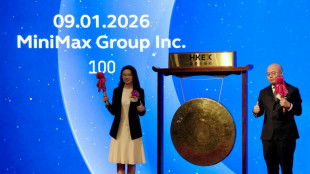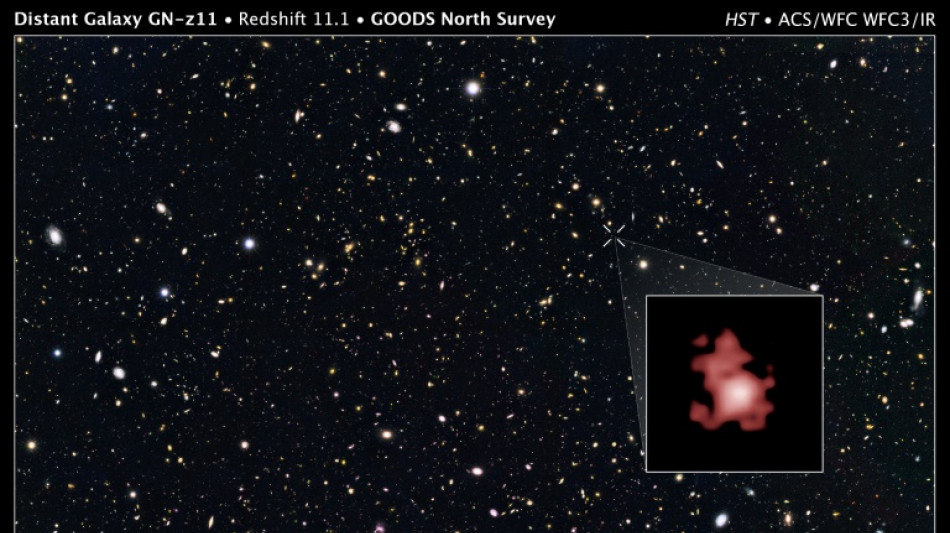
-
 Wrexham ride 'rollercoaster' to knock Nottingham Forest out of FA Cup
Wrexham ride 'rollercoaster' to knock Nottingham Forest out of FA Cup
-
Mavs' Davis has ligament damage in left hand: report
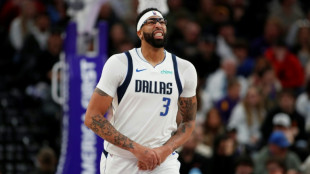
-
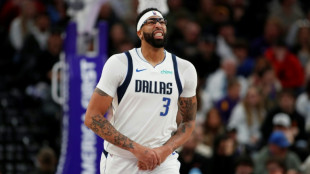 Mavs' Davis has ligament damaged in left hand: report
Mavs' Davis has ligament damaged in left hand: report
-
Australia declares state of disaster as bushfires rage

-
 Morocco coach Regragui urges calm as hosts reach AFCON last four
Morocco coach Regragui urges calm as hosts reach AFCON last four
-
Koepka applies for PGA Tour reinstatement: reports

-
 Bath and Edinburgh close in on Champions Cup last 16
Bath and Edinburgh close in on Champions Cup last 16
-
Anger over Minneapolis shooting probe fuels protests

-
 Hosts Morocco march on to AFCON semis as Senegal reach last four
Hosts Morocco march on to AFCON semis as Senegal reach last four
-
Trump pitches Venezuela oil to US majors - and hits skepticism

-
 Ebnoutalib scores on debut as Dortmund drop points at Frankfurt
Ebnoutalib scores on debut as Dortmund drop points at Frankfurt
-
Winter Olympic organisers insist ice hockey arena ready despite hole in rink

-
 Diaz scores again as hosts Morocco beat Cameroon to reach AFCON semis
Diaz scores again as hosts Morocco beat Cameroon to reach AFCON semis
-
Minneapolis asks to join probe into woman's killing by immigration officer

-
 MLB hands German outfielder Kepler 80-game doping ban
MLB hands German outfielder Kepler 80-game doping ban
-
MLB hands German outfielder Kepler 80-game doing ban

-
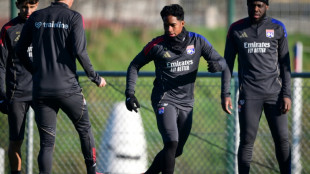 Brazil's Endrick says Lyon 'ideal club' to boost World Cup ambitions
Brazil's Endrick says Lyon 'ideal club' to boost World Cup ambitions
-
Brew, smell, and serve: AI steals the show at CES 2026

-
 Young 'ecstatic' about NBA move from Hawks to Wizards
Young 'ecstatic' about NBA move from Hawks to Wizards
-
Trump meets oil executives, says $100 bn pledged for Venezuela

-
 Venezuela says in talks with US to restore diplomatic ties
Venezuela says in talks with US to restore diplomatic ties
-
De Klerk fireworks guide Bengaluru to victory in WPL opener

-
 Uganda's Kiplimo seeks third world cross country crown in a row
Uganda's Kiplimo seeks third world cross country crown in a row
-
Olympic ice hockey arena will be ready for Games: IOC director

-
 Recalled Ndiaye takes Senegal past 10-man Mali into AFCON semis
Recalled Ndiaye takes Senegal past 10-man Mali into AFCON semis
-
'Devastated' Switzerland grieves New Year inferno victims

-
 Man pleads guilty to sending 'abhorrent messages' to England women's footballer Carter
Man pleads guilty to sending 'abhorrent messages' to England women's footballer Carter
-
PGA Tour unveils fall slate with Japan, Mexico, Bermuda stops
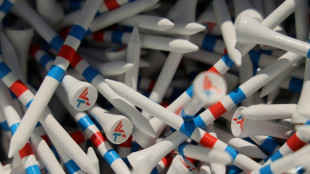
-
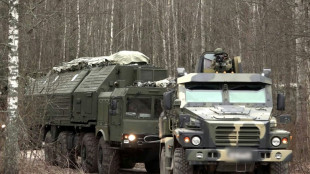 'Unhappy' Putin sends message to West with Ukraine strike on EU border
'Unhappy' Putin sends message to West with Ukraine strike on EU border
-
Fletcher defends United academy after Amorim criticism

-
 Kyiv mayor calls for temporary evacuation over heating outages
Kyiv mayor calls for temporary evacuation over heating outages
-
Families wait in anguish for prisoners' release in Venezuela

-
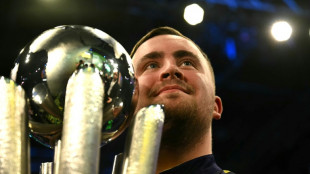 Littler signs reported record £20 million darts deal
Littler signs reported record £20 million darts deal
-
'Devastated' Switzerland grieves deadly New Year fire

-
 Syria threatens to bomb Kurdish district in Aleppo as fighters refuse to evacuate
Syria threatens to bomb Kurdish district in Aleppo as fighters refuse to evacuate
-
Britain's Princess Catherine 'deeply grateful' after year in cancer remission

-
 Russia joins Chinese, Iran warships for drills off South Africa
Russia joins Chinese, Iran warships for drills off South Africa
-
40 white roses: shaken mourners remember Swiss fire victims

-
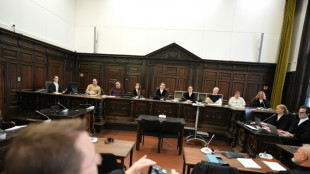 German trial starts of 'White Tiger' online predator
German trial starts of 'White Tiger' online predator
-
Stocks rise despite mixed US jobs data
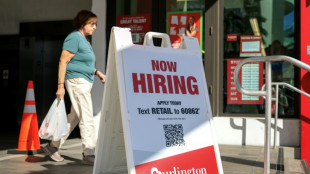
-
 'Palestine 36' director says film is about 'refusal to disappear'
'Palestine 36' director says film is about 'refusal to disappear'
-
US December hiring misses expectations, capping weak 2025
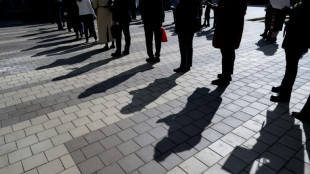
-
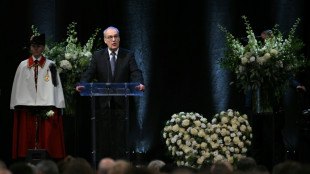 Switzerland 'devastated' by fire tragedy: president
Switzerland 'devastated' by fire tragedy: president
-
Rosenior not scared of challenge at 'world class' Chelsea
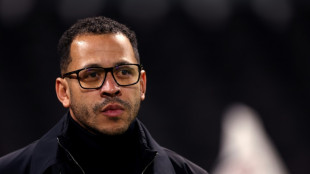
-
 Polish farmers march against Mercosur trade deal
Polish farmers march against Mercosur trade deal
-
Swiatek wins in 58 minutes as Poland reach United Cup semis

-
 Ski great Hirscher pulls out of Olympics, ends season
Ski great Hirscher pulls out of Olympics, ends season
-
'War is back in vogue,' Pope Leo says
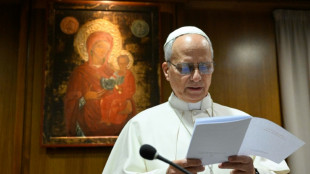
-
 Storms pummel northern Europe causing travel mayhem and power cuts
Storms pummel northern Europe causing travel mayhem and power cuts
-
France has right to say 'no' to US, Paris says
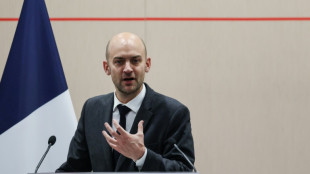

Webb telescope discovers oldest black hole yet
The James Webb space telescope has discovered the oldest black hole ever detected, which was thriving so soon after the Big Bang that it challenges our understanding of how these celestial behemoths form, astronomers said Wednesday.
The black hole was vigorously gobbling up its host galaxy just 430 million years after the birth of the universe during a period called the cosmic dawn, according to a study in the journal Nature.
That makes it 200 million years older than any other massive black hole ever observed, study co-author and Cambridge University astronomer Jan Scholtz told AFP.
Yet it has a mass 1.6 million times greater than our Sun.
Exactly how it had time to grow that big so quickly after the Big Bang 13.8 billion years ago will provide new information "for the next generation of theoretical models" aiming to explain what creates black holes, Scholtz said.
Like all black holes, it is invisible and can only be detected by the vast explosions of light created when it gobbles up whatever matter is unlucky enough to be nearby.
It was this light that allowed the Hubble space telescope in 2016 to spot its host galaxy GN-z11, which is in the direction of the Ursa Major constellation.
At the time GN-z11 was the oldest -- and therefore most distant -- galaxy ever observed. However Hubble did not spot the black hole lurking at its centre.
In 2022, Webb usurped Hubble as the most powerful space telescope, unleashing a torrent of discoveries that have scientists rushing to keep up.
Not only has it spotted the black hole at the heart of GN-z11, but it has also discovered galaxies even further back in time and space, which are also bigger than had been thought possible.
- Growing up fast -
The black hole was energetically eating up GN-z11 during the cosmic dawn, a period which came right after the universe's "dark ages," when stars and galaxies were first born.
It normally takes the supermassive black holes squatting at the centre of galaxies hundreds of millions -- if not billions -- of years to form.
So how could this one have grown so quickly?
Study co-author Stephane Charlot, an astrophysicist at France's Institut d'Astrophysique de Paris, suggested that black holes in the early universe could have been formed in a different way than those closer by.
One theory is that they were born huge due to the explosion of especially massive stars that only existed in the early universe, he told AFP.
Or they could have been created by the "direct collapse of a dense gas cloud, without going through the star formation phase," he added.
Once born, the black hole would have been able to gorge itself on the plentiful gas nearby, prompting an almighty growth spurt.
Scholtz emphasised that what has been discovered so far about the black hole of GN-z11 "doesn't rule out any of these scenarios".
And it could be just the beginning.
Scholtz hopes that Webb -- and other telescopes on the way, such as the European Space Agency's Euclid -- will discover more of these black holes in the earliest glimmers of the universe.
Y.Aukaiv--AMWN
